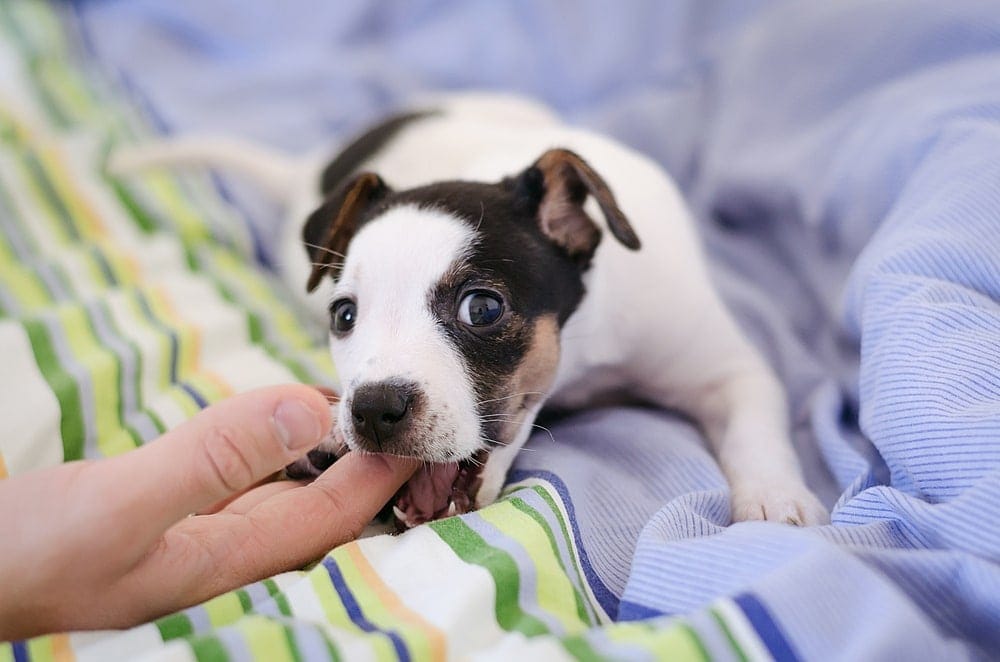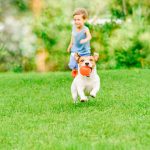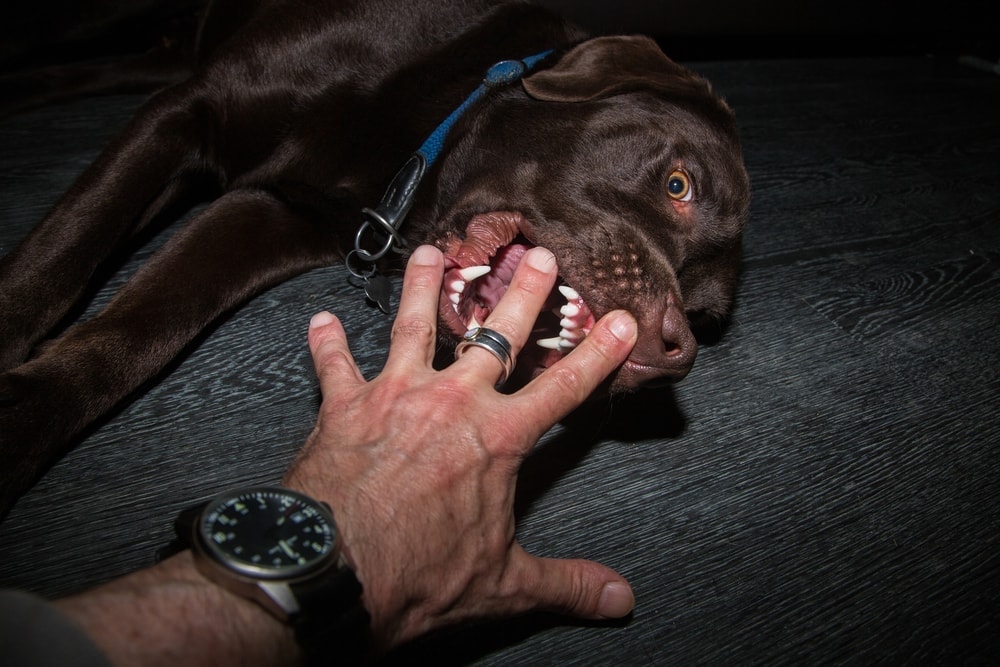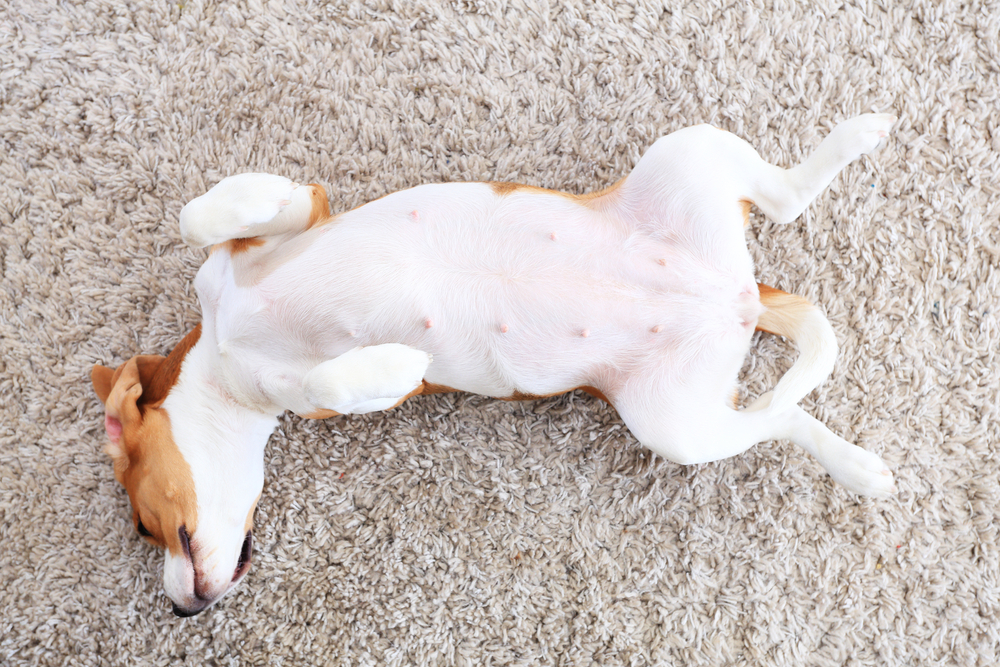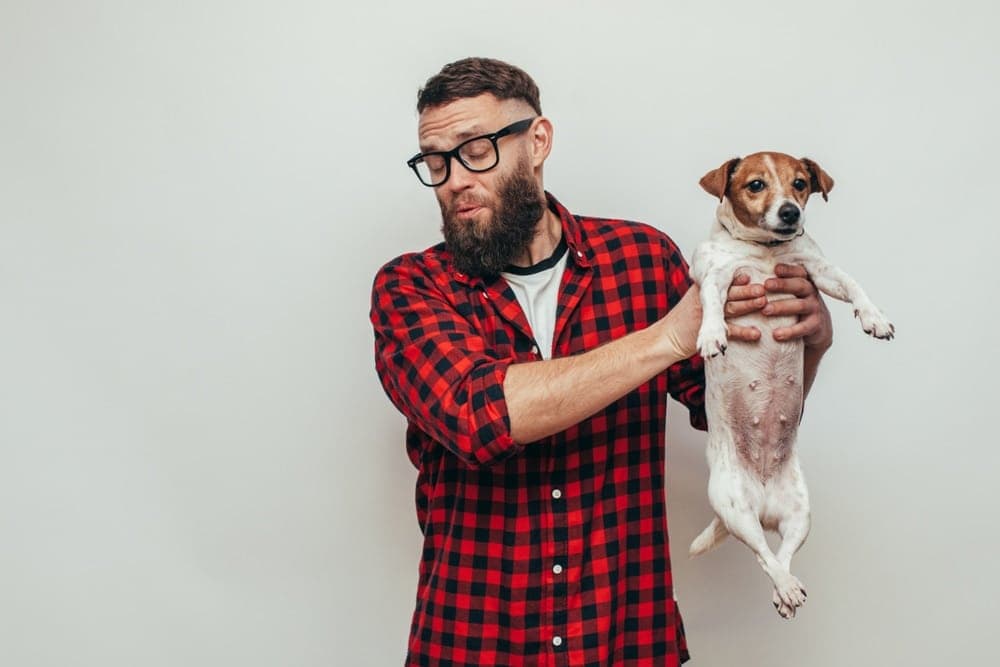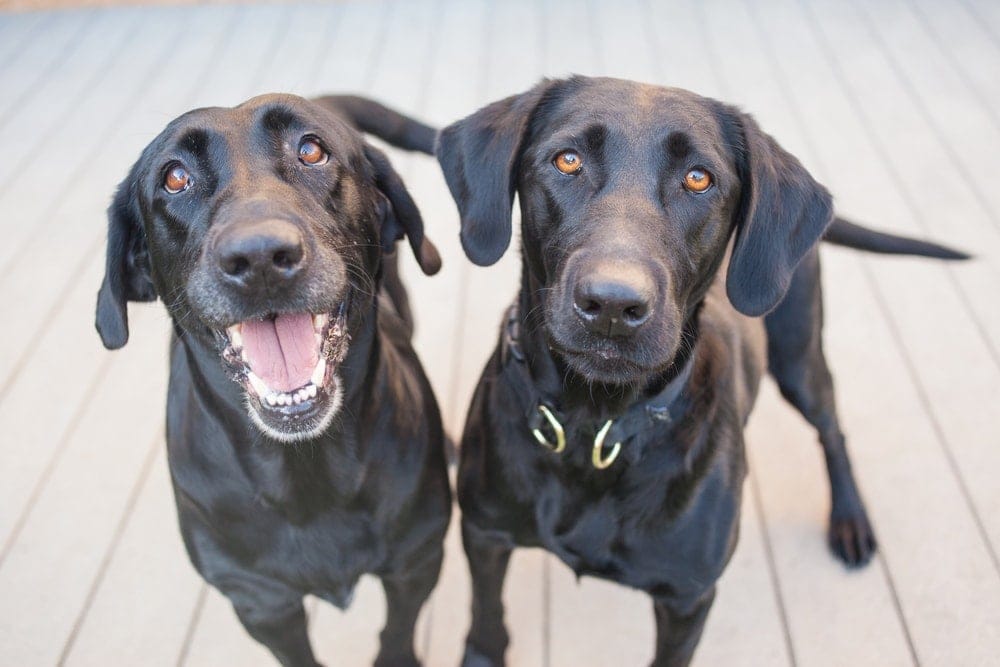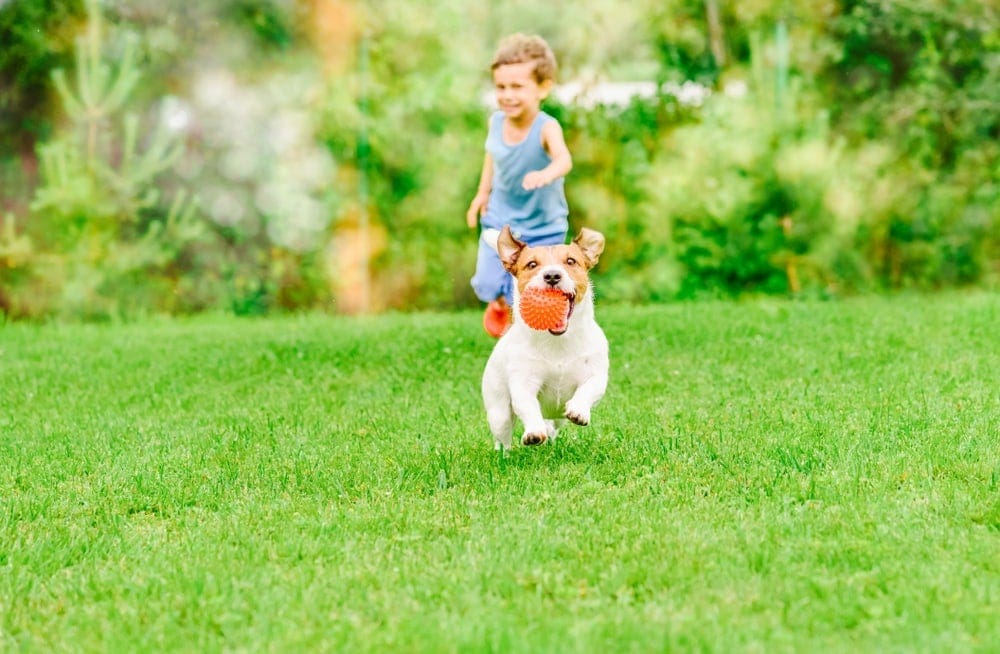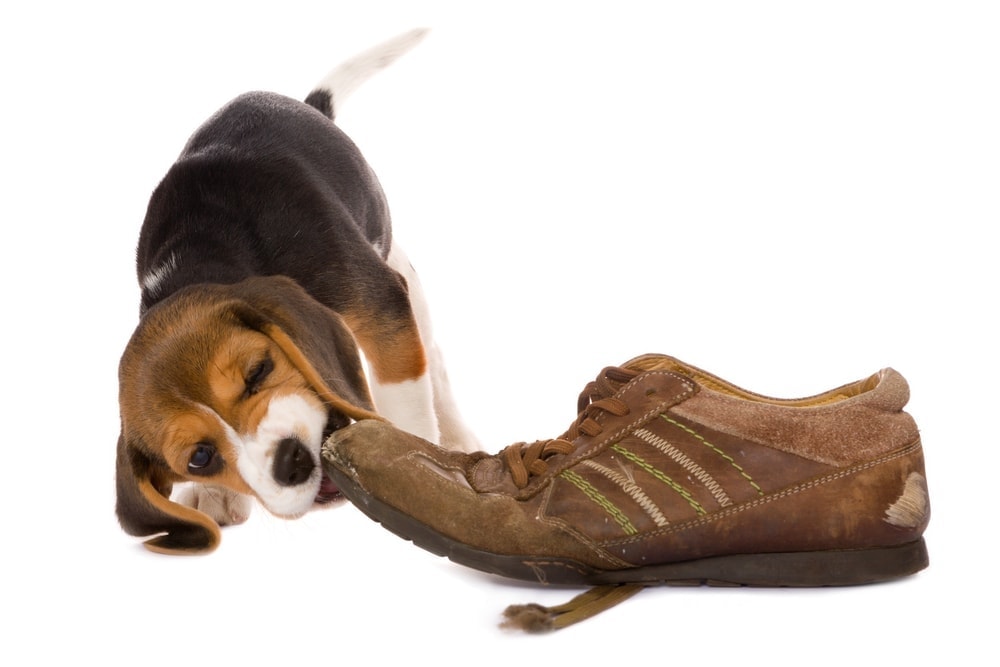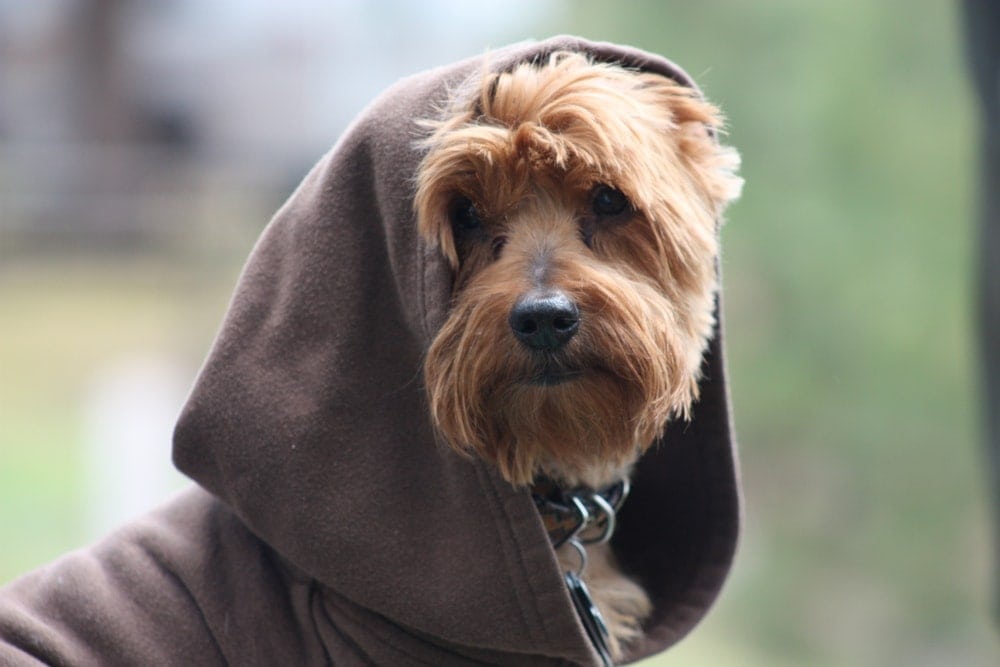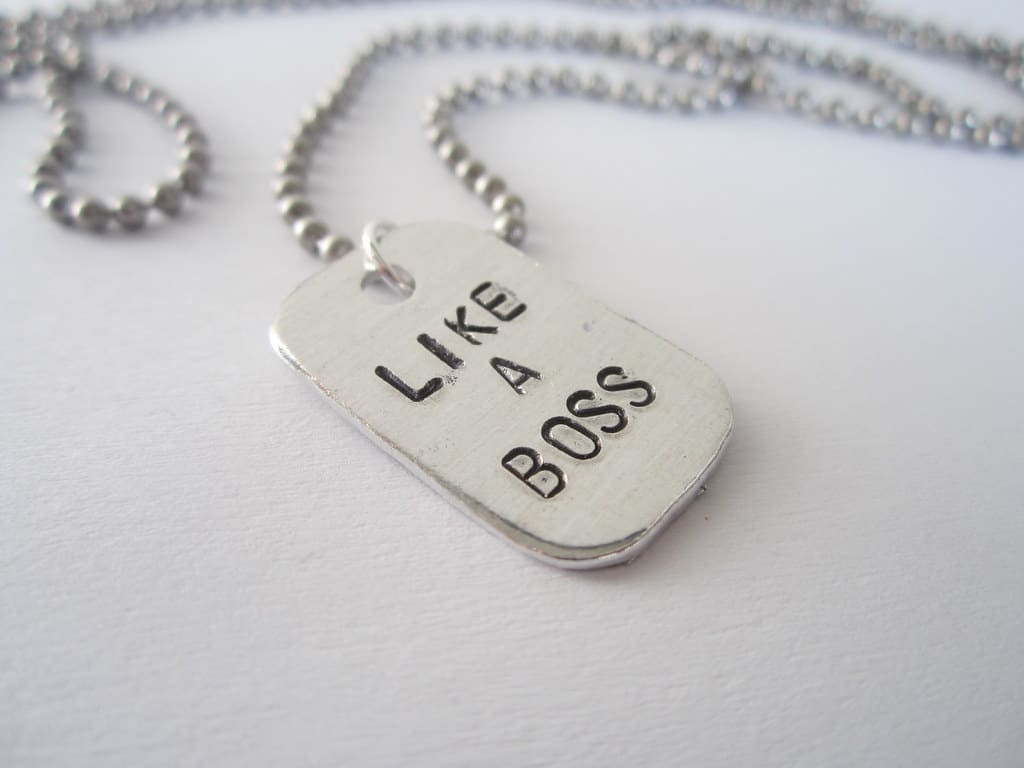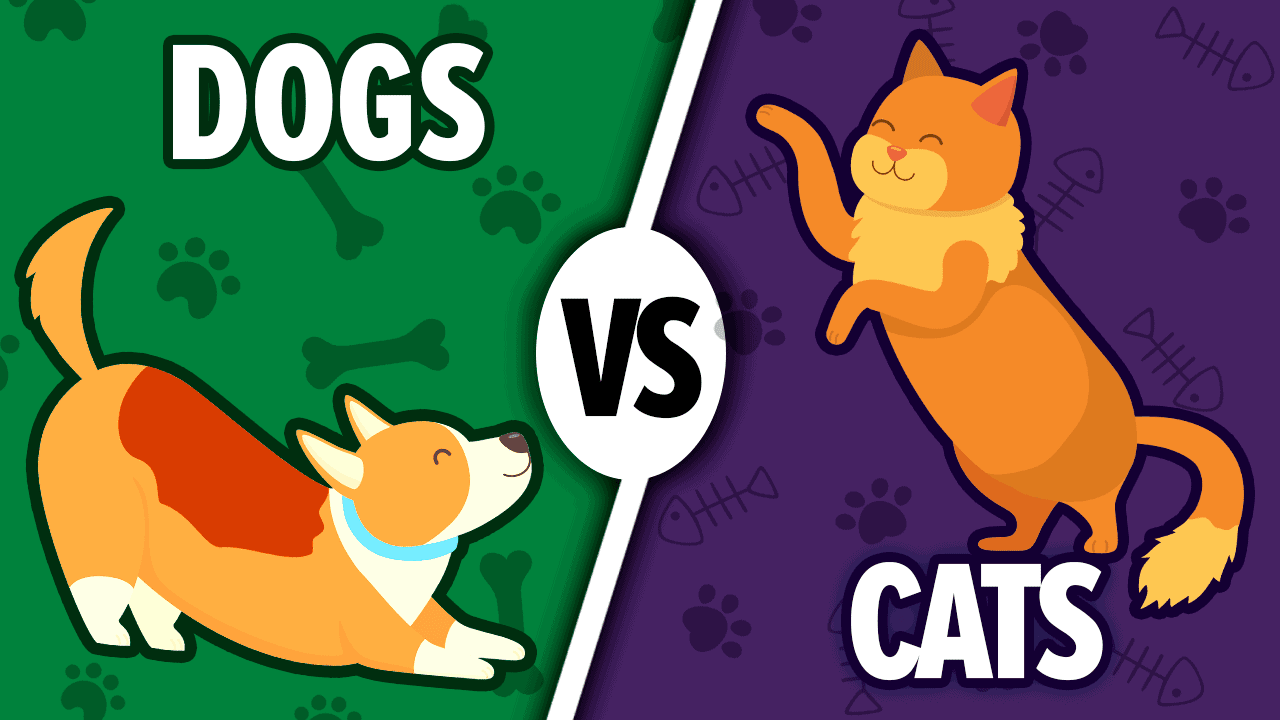If you have a puppy that likes to nibble, you are certainly not alone.
This behavior is perfectly normal, but usually doesn’t last forever. There are a few things that determine when your dog might stop being quite so bitey. You can also do things to speed this process along.
Teething in Puppies
Puppies first start teething around three months of age. This is a normal behavior that is similar to what many children go through. Your dog will develop a full set of teeth once it is reaches seven months. Some dogs teethe for longer than others, but it is nothing to be immediately concerned about.
Teething behavior usually lasts for a few months, but it is different for every dog. It usually presents at gentle nibbling on the fingers, but they may chew on all sorts of things. The first teeth that dogs get are quite sharp, so this nibbling can be a little painful for owners.
This can be a somewhat painful time for puppies, which is why they bite/nibble in the first place. It is important that you are patient with your pet while it is going through this phase.
Out with the Older and in with the New
Dogs usually begin losing their baby teeth at about four to six months. This is when their adult teeth start growing in. There are dogs that keep losing their teeth until they are as old as nine months. The new teeth that come in aren’t nearly as sharp as their baby teeth, but they are larger overall.
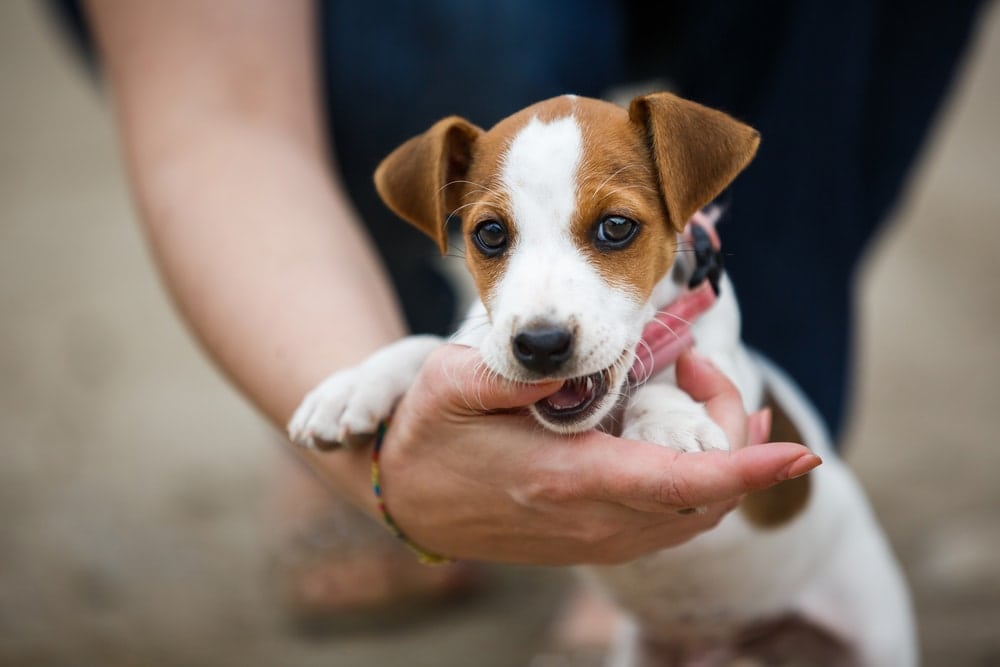
Training Your Puppy Not to Bite
These animals usually learn not to bite too hard when they are teething from the other dogs in their litter. If one dog bites another one with a little too much force, they will cry out. This high-pitched sound lets the offending dog know that they were too rough.
If your pet doesn’t have any other dogs to learn this from, you will have to assume responsibility. When your dog nibbles on you too hard, you should yell “Ow!” loudly. You should try to sound as much like a puppy crying out in pain as possible. It is important that you react this way immediately so they understand the cause and effect.
This should send your dog the right message. They will probably continue to nibble, but hopefully not quite as hard. Just remember not to ever hit your puppy, as this could only make the problem worse. The last thing you want is to unintentionally make them even more aggressive.
You can also try stopping a play time for a little bit as a form of punishment. This will provide your dog with an incentive to be more careful with their teeth.
While it is important that you play with them, you don’t want to encourage too-rough behavior. This can lead to your dog becoming aggressive in adulthood, which is much worse.
Being Playful
While teething is a common cause of biting in puppies, they also do it as a way of being playful. This is a very common behavior amongst puppies in the same litter. It is just a natural instinct for these animals. It is, however, important to nip this in the bud, so to speak.
As mentioned above, you don’t want your dog’s biting habits to continue as they get older. It might be cute while they are still small, but biting with big adult teeth can be harmful and dangerous for you and other pets in the house.
By stopping play time when your puppy starts biting, you will teach it that this is not an acceptable form of play. Just give them a brief time out to reinforce your message as effectively as possible.
Get Your Dog Some Toys
Anyone who owns a puppy will need to make a point of getting their pet a good number of fun chew toys. The more fun your puppy has with its toys, the less likely it will be to gnaw on your fingers.
Look for toys that are made out of rope or a soft material that they can really sink their teeth into. Avoid any toys with stuffing or small parts like squeakers inside, as they pose a choking hazard for your little pup.
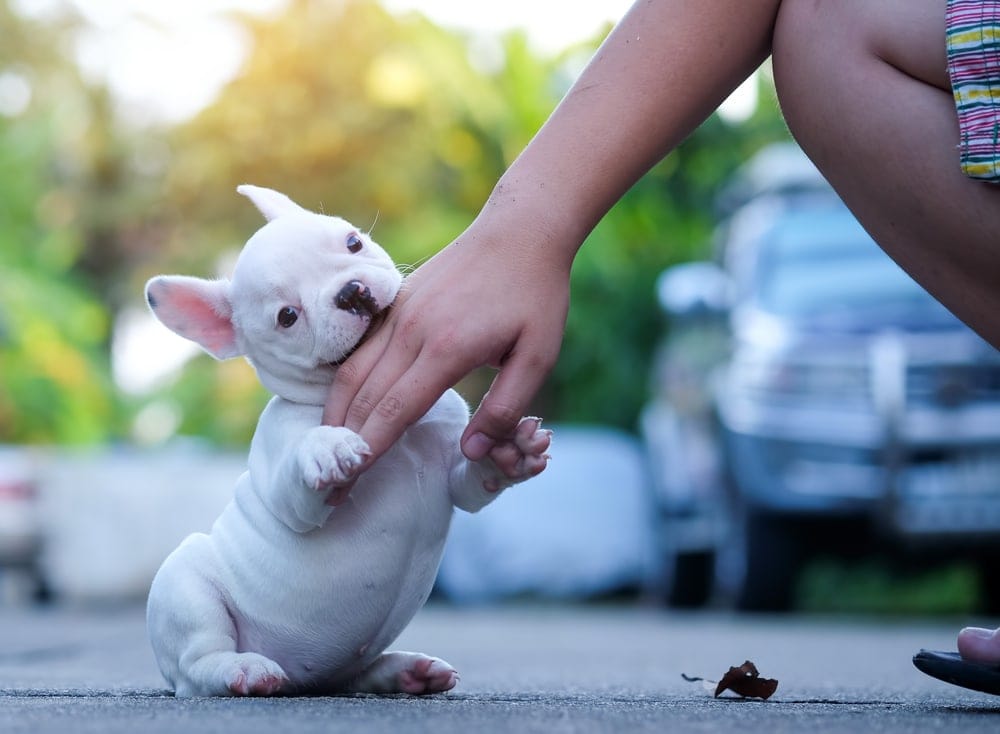
Positive Reinforcement
When you are teaching your dog not to bite while it is still a puppy, you should make a point of using positive reinforcement. This means giving your dog praise when it plays with you without any nibbling. It can be a great way to prevent this behavior in the future.
Adequate Exercise
Most puppies are constantly bursting with energy, so you will need to make sure that get regular exercise. This means letting your dog run around the yard to its heart’s content. The more you wear out your dog, the less likely it will be to bite.
This can put a stop to all of the nibbling sooner rather than later. One of the reasons that dogs do this is because they have so much energy they need to expend while they are awake.
Conclusion
- You will probably notice your dog start nibbling on you at around three months old, which is when teething begins.
- Most dogs stop biting by the time they are six or seven months old, once their adult teeth grow in.
- It is important to take the necessary measures to ensure that your puppy’s biting doesn’t carry over into adulthood.
- Make sure that your puppy has lots of fun toys to chew on while it is going through this phase.
- Dogs naturally learn not to bite too hard from the other dogs in their litter.
- Scold your dog loudly in a high-pitched voice when it bites you too hard during playtime.
- You need to provide your puppy with plenty of exercise on a daily basis. This could help curb their biting behavior quite effectively.
